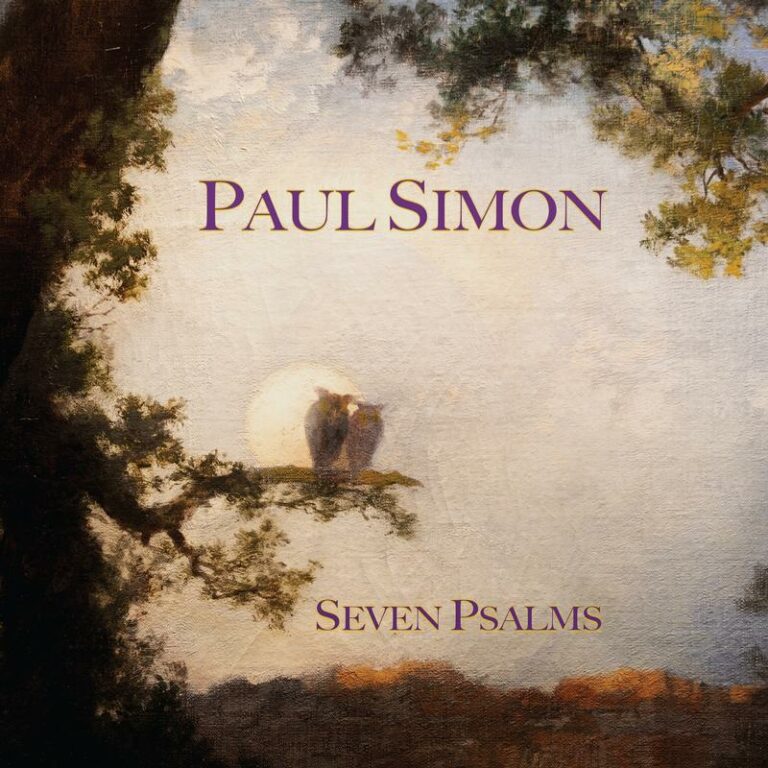Paul Simon’s Seven Psalms, his first album since 2018’s In the Blue Light, isn’t quite like anything he has done before. For starters, it’s more prayer than pop, more meditative than melodic, and it is subdued enough to make even songs like “America” and “The Only Living Boy in New York” seem sprightly by comparison. Also, while the now 81-year-old Simon has written about aging and mortality throughout his career (see 1966’s “Leaves That Are Green” and 1968’s “Old Friends,” for example), the topic has never previously been stage center throughout an entire LP. Finally, the new album presents its seven parts as a single 33-minute track. So, you can forget about buying – or playing – just one or two favorite numbers; this is basically an all-or-nothing proposition.
Simon says the album’s title came to him in a dream in 2019 and that the lyrics subsequently entered his head in bits and pieces when he’d wake up in the early morning hours. His fingerpicked guitar and other acoustic instruments – ranging from gongs and bells to talking drum, dobro, and harmonica – back his pensive vocals on the album, which also features musicians who add Swiss tuned bells, flute, viola, cello, and more. The British group VOCES8 and singer/songwriter Edie Brickell, Simon’s wife of more than 30 years, provide vocal support.
He describes the record as being about “an argument I’m having with myself about belief,” so it’s no surprise that the poetic lyrics conjure up a man who is struggling and has more questions than answers. “I have my reasons to doubt,” he sings at one point. “Two billion heartbeats and out, or does it all begin again?” In the same song, he seems to partially echo a line from Bob Dylan’s “Tryin’ to Get to Heaven” when he proclaims that he’s “hoping the gates won’t be closed before your forgiveness.” Later, he observes that “we’re all walking down the same road to wherever it ends” and asks: “Are we all just trial and error, one of a billion in the universe?”
“Heaven is beautiful, it’s almost like home,” Brickell sings in the final psalm. “It’s time to come home,” she adds, before she and Simon conclude the record with “amen.”
This album is not going to grab you the way the upbeat, catchy material could on, for example, Simon’s Graceland or his LPs with Art Garfunkel. That said, it’s gentle, sweet, and worth hearing. Just leave your dancing shoes at the door.
Also Noteworthy
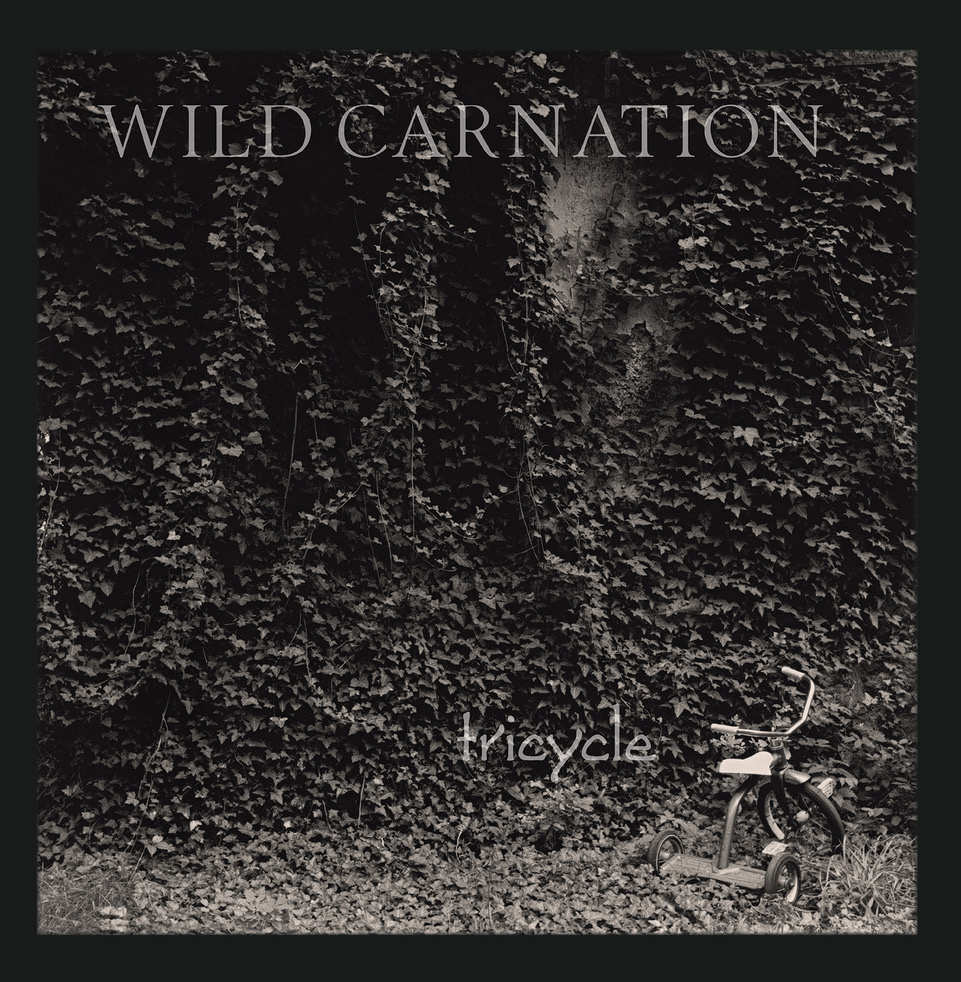
Wild Carnation, Tricycle. This digital-only release constitutes a vastly expanded edition of the 1995 debut album from Wild Carnation, a New Jersey-based indie-rock trio consisting of the Feelies’ Brenda Sauter (vocals, bass), Rich Barnes (guitar), and Chris O’Donovan (percussion, vocals). It’s consistently terrific – smart, edgy, hook-loaded, and energized. Think Galaxie 500 with hints of Velvet Underground and, at times, Belle & Sebastian. In addition to the original 12-track program, the set includes demo versions of seven of its selections plus a nearly hour-long, dozen-song recording of a 1997 concert from Hamburg, Germany. Should the studio material somehow fail to win you over, the live set will do the trick. It includes some of the band’s most compelling original compositions, plus three well-done, disparate covers: Patti Smith’s “Dancing Barefoot,” the Grass Roots’ “Wait a Million Years,” and Ian Tyson’s classic “Four Strong Winds.”
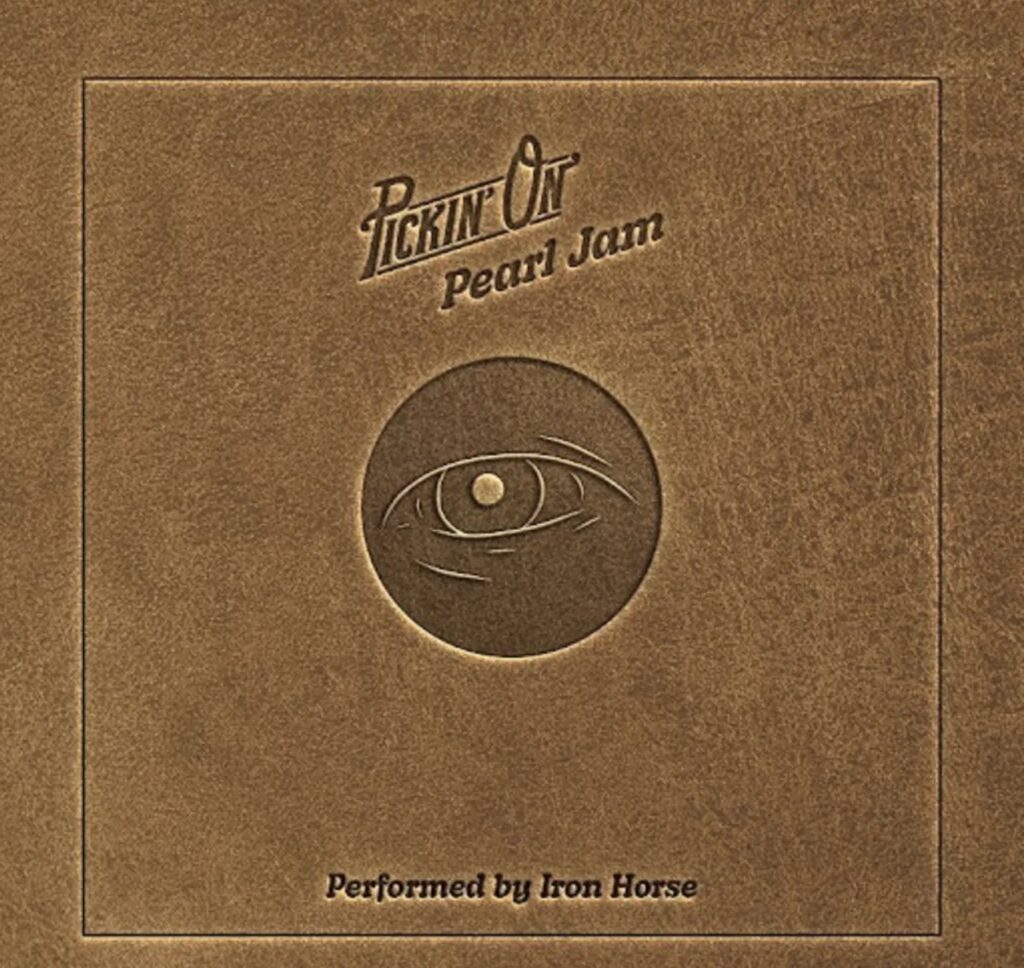
Iron Horse, Pickin’ on Pearl Jam. Bluegrass versions of songs by the rock band Pearl Jam may seem like a crazy idea, but only until you’ve heard Iron Horse, whose previous albums have delivered bluegrass variations on music by such acts as Metallica, Led Zeppelin, and Guns n’ Roses. The group, which formed in Muscle Shoals, Alabama, in 2000, consists of Tony Robertson (mandolin), Ricky Rogers (bass), Vance Henry (guitar), Andy Richardson (banjo and dobro), and Brian Robertson (percussion). Four of the five provide harmony vocals and three of them take turns singing lead. On this self-produced LP, they apply their consummate musicianship to such Pearl Jam standouts as “Better Man,” “Daughter,” “Alive,” and “Given to Fly.”
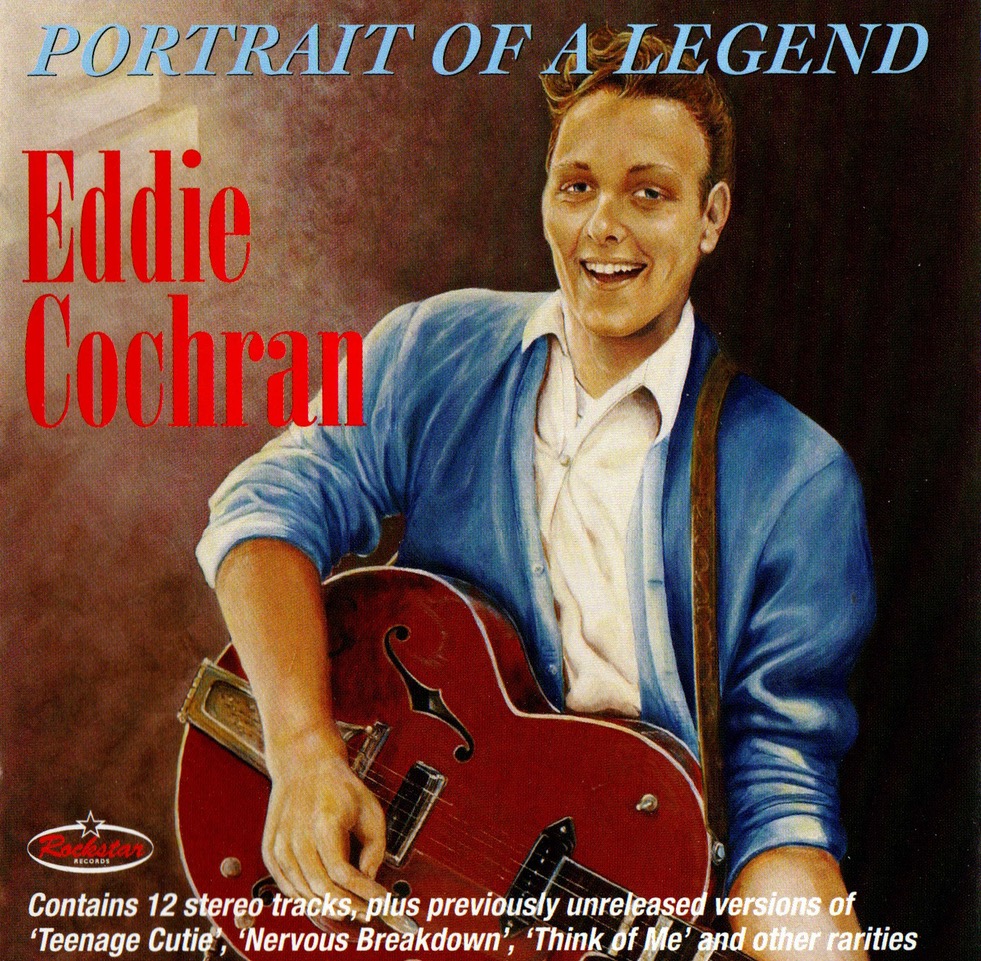
Eddie Cochran, Portrait of a Legend. First released as a 16-track vinyl LP in 1985, this album has been expanded to include 35 rare stereo versions, alternate mixes, and previously unissued outtakes by rock and rockabilly artist Eddie Cochran, who died in an auto accident in 1960. The singer – whose style conjures up a mix of Elvis Presley and Jerry Lee Lewis with a touch of Gene Vincent and the Big Bopper – wrote many of his own songs, some of which have been widely covered. The bulk of his notable material is here, including “Summertime Blues,” a Top 10 hit in 1958, and “C’mon Everybody,” which charted in the same year, as well as four numbers that feature backup by Buddy Holly’s Crickets. Purists may want to start elsewhere because most of Cochran’s well-known singles differ slightly from the versions on Portrait of a Legend. That said, the music here is consistently excellent.
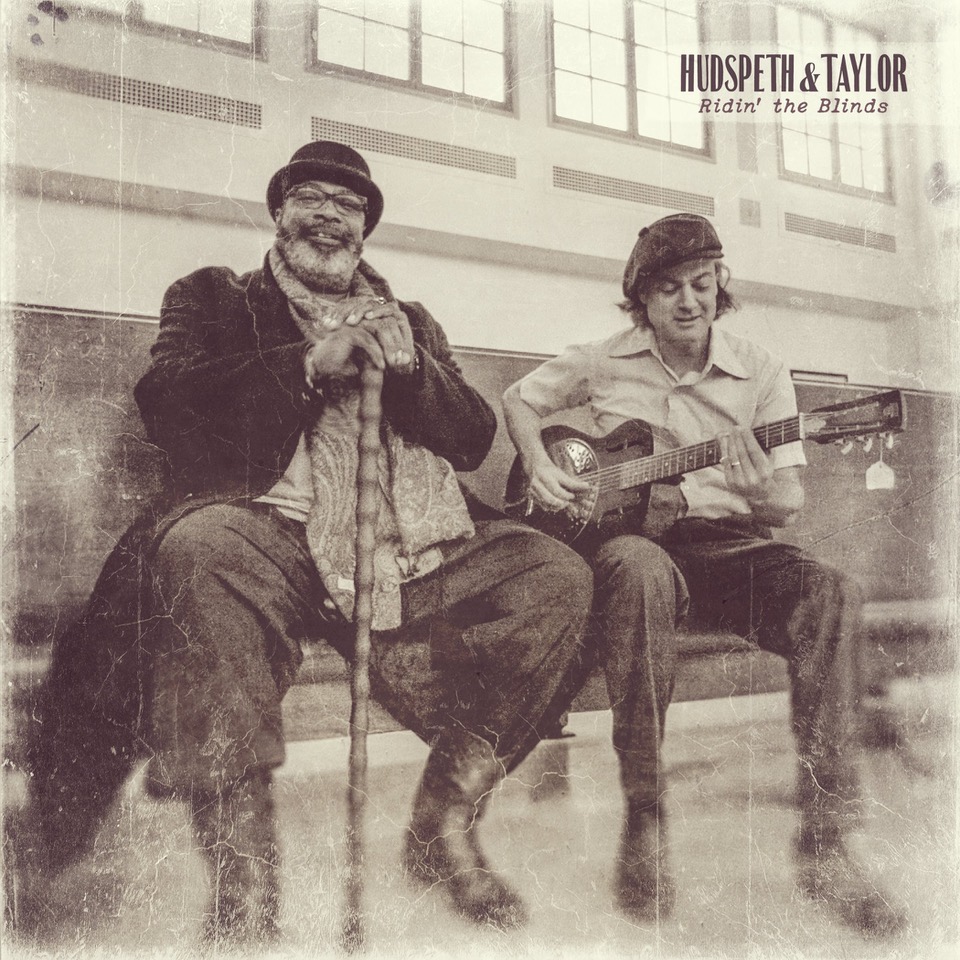
Hudspeth & Taylor, Ridin’ the Blinds. Guitarist Brandon Hudspeth and singer/percussionist Jaisson Taylor deliver a strong follow-up to their 2019 debut album with Ridin’ the Blinds, a 12-track Mississippi Delta blues-influenced collection that winningly updates numbers like the traditional “Blues in the Bottle,” Muddy Waters’s “I Can’t Be Satisfied,” Blind Blake’s “Police Dog Blues,” Fred McDowell’s “Write Me a Few of Your Lines,” and Big Bill Broonzy’s “Hey Hey.” Taylor’s four-octave-range vocals are a treat and Hudspeth’s propulsive guitar work is often nothing short of sensational.
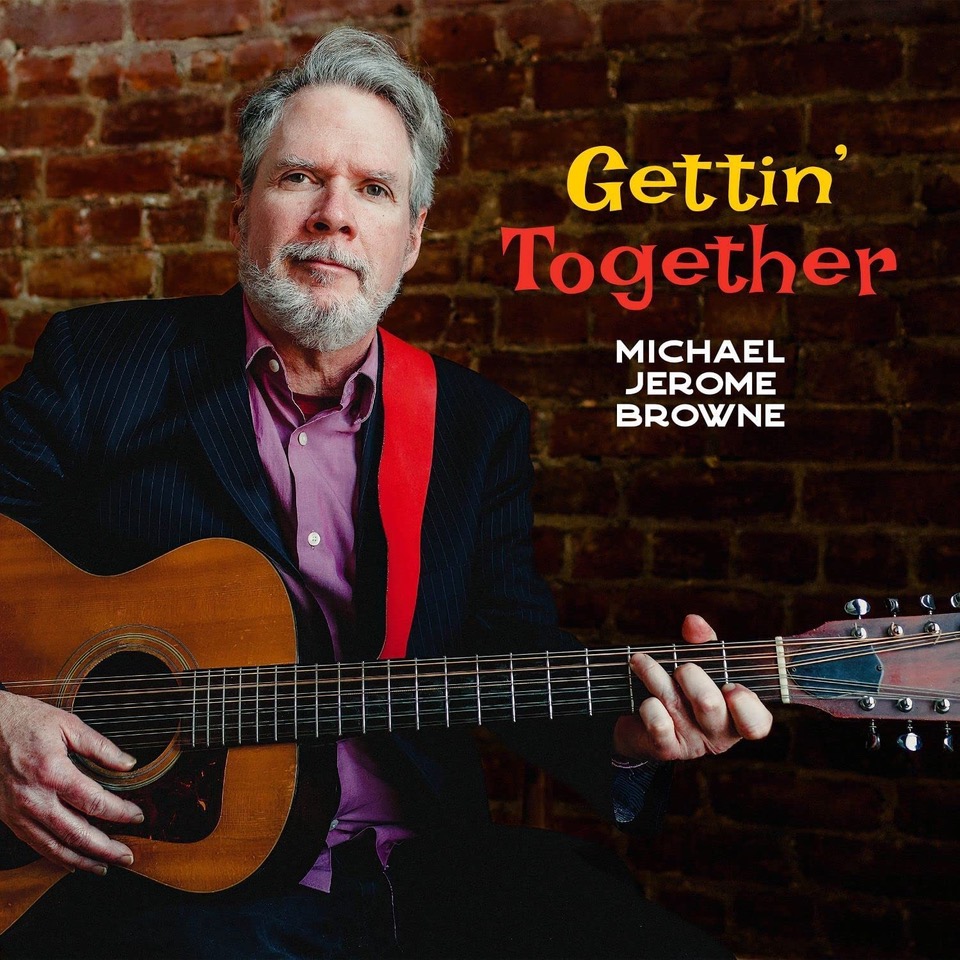
Michael Jerome Browne, Gettin’ Together. Indiana-born and Canada-based blues/folk singer and multi-instrumentalist Michael Jerome Browne taps well-known roots music on his enjoyable latest album, where his 12-string guitar and banjo work shares the spotlight with contributions from such guests as John Sebastian, Colin Lindon, and Eric Bibb. Among the 14 acoustic tracks on Gettin’ Together: Mississippi John Hurt’s “Monday Morning Blues” and “Coffee Blues,” Bukka White’s “Shake ’Em on Down” and “Fixin’ to Die Blues,” and Brownie and Ruth McGhee’s “Living with the Blues.” Like all good music from this genre, the performances here won’t actually give you the blues – they’ll help you recover from them.
Jeff Burger’s website, byjeffburger.com, contains five decades’ worth of music reviews, interviews, and commentary. His books include Dylan on Dylan: Interviews and Encounters, Lennon on Lennon: Conversations with John Lennon, Leonard Cohen on Leonard Cohen: Interviews and Encounters, and Springsteen on Springsteen: Interviews, Speeches, and Encounters.


